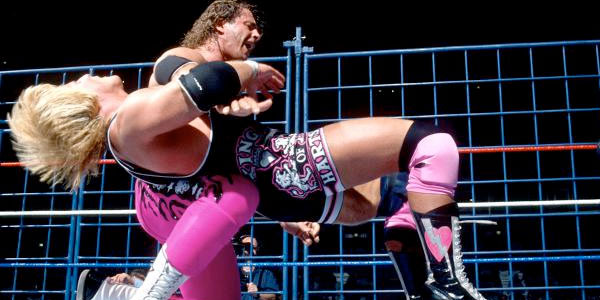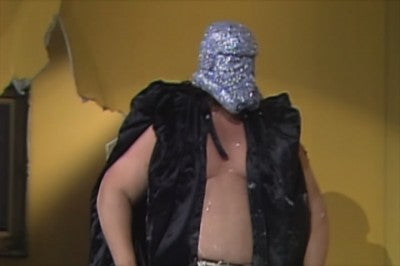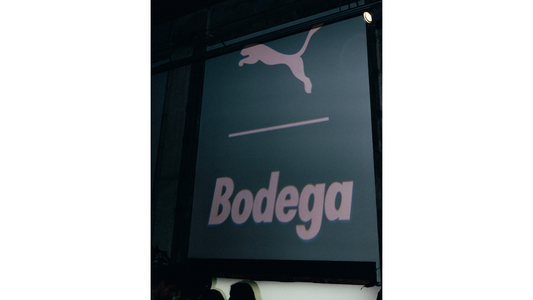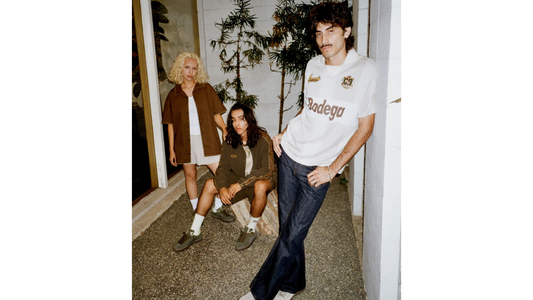May 27, 1996: You Want A War?
If you came of age after professional wrestling’s late 90s explosion in popularity, wrestling is just part of the pop culture landscape. Its popularity ebbs and flows at any given time, but, at the very least, it’s always there for the benefit of those interested in it.
Twenty years ago, pro wrestling in the United States, as far as being a viable part of mass culture was, no pun intended, on the ropes. By the mid 1990s, the stars of the 80s that had taken the then-WWF to mainstream popularity were either retired, or not exactly the draws they once were. Meanwhile, in the often calamitous world of the NWA/WCW, the few stars they had were buried by terrible creative and business decision making.
Unless you were lucky enough to live in an area that carried ECW on regional television, your options for watching wrestling were limited and grim.

That isn’t to say that there weren’t talented wrestlers working, it’s just that their efforts could only do so much in terms of keeping fans around. For instance, the classic Bret Hart – Owen Hart feud took place during these dark days. The rivalry culminated in an all-time great cage match at Summerslam 1994. Unfortunately, the co-main event on that show was a match between the Undertaker and an imposter Undertaker. (The fake may have been able to vaguely pull off the impression while the real Undertaker was off tv for months, but looked categorically nothing like him when they were standing face to face.)
That was the problem facing the industry in a nutshell. For every Shawn Michaels or Sting, there were ten Doinks, Yetis, Shockmasters, or King Mabels:



To say that the business was in a down period would have been an understatement. It makes it all the more incredible that the event that changed wrestling, forever, took place in the middle of this depression.

On May 27, 1996, Scott Hall, who for the past four years had been one of the biggest stars in the WWF as Razor Ramon, meandered through the crowd, over the guardrail, and into the ring, right in the middle of a match on a live broadcast of WCW’s Monday Nitro. Since Nitro debuted in the fall of 1995, showrunner Eric Bischoff would denigrate the WWF on every show, at every opportunity. The most shocking manifestation of this strategy was to announce the results of the taped Raw shows before they went on the air. The long term enmity between the two companies, and the increasingly heated ratings war meant that most fans were more than willing to believe that a very real war was at hand.

Since the advent of the internet, the ins and outs of the wrestling business have become common knowledge, but in 1996, unless you were the type of hardcore fan who subscribed to insider newsletters, this looked like the start of that war. From the perspective of most fans, what they saw was a major WWF performer legitimately invading the competition’s show.

Hall’s remarks on the microphone were more clear cut. He dismissed WCW, their top stars, and their antics in some detail. “You want a war,” he asked. “You got one.”
The extent to which this single promo changed everything simply cannot be overstated. Scott Hall’s rail hopping promo was, as long time wrestling fans know, the beginning of the New World Order story line that would not just launch WCW to the top of the wrestling world, but take wrestling itself to unheard of ratings heights. Adding Hulk Hogan to the nWo alone drew back fans who hadn’t watched a match in years. They just had to know how Hulk Hogan could have possibly gone from prayers and vitamins to being a bad guy.

In turn, the WWF would be forced to up their game, or close their doors for good. The rise of Stone Cold Steve Austin, The Rock, Mick Foley, and Triple H, among others, was a direct response to the unprecedented pressure being applied to the WWF.
Nothing happens overnight. Twenty years later, just think about the fact that the beginning of wrestling’s rebirth, the single groundbreaking, innovative event was Scott Hall, wearing blue jeans and a matching vest with no shirt, showing up unannounced on a show that got lower ratings than Star Trek: Voyager that night.
The only words for it are too sweet.
Written by Dan Alvarez






